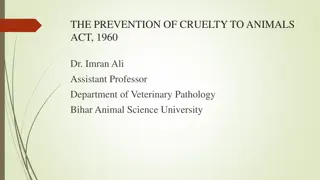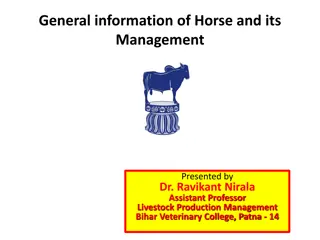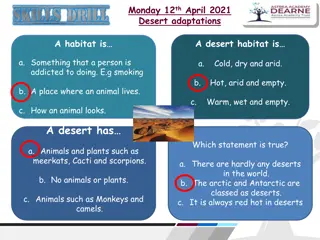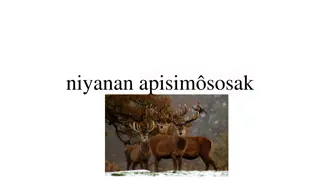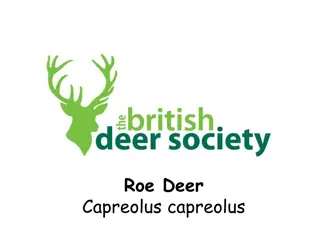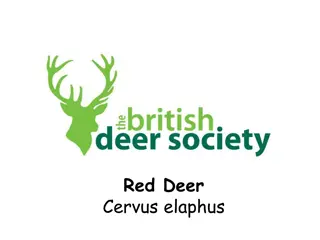Adaptations of Cursorial Animals: Cheetah, Horse, and Musk Deer
"Explore the cursorial adaptations of three distinct animals - the cheetah with its incredible speed, the horse designed for swift running, and the musk deer adapted for elusive movements. Learn about their habitats, unique characteristics, and specialized adaptations for survival in their environments."
Download Presentation

Please find below an Image/Link to download the presentation.
The content on the website is provided AS IS for your information and personal use only. It may not be sold, licensed, or shared on other websites without obtaining consent from the author.If you encounter any issues during the download, it is possible that the publisher has removed the file from their server.
You are allowed to download the files provided on this website for personal or commercial use, subject to the condition that they are used lawfully. All files are the property of their respective owners.
The content on the website is provided AS IS for your information and personal use only. It may not be sold, licensed, or shared on other websites without obtaining consent from the author.
E N D
Presentation Transcript
Acinonyx jubatus Scientific classification Kingdom: Animalia Phylum: Chordata Class: Mammalia Order: Carnivora Suborder: Feliformia Family: Felidae Subfamily: Felinae Genus: Acinonyx Species: A. jubatus
Cheetah Habit and habitat: Live in grasslands. Commonly called as Cheetah or Hunting leopard
Forelimb and hind limbs comparatively larger. It walks on padded feet. It preys on small birds and antelopes. Cheetahs are fast runner, capable of running 60 miles per hour to overtake and pull down
Equus caballus Scientific classification Kingdom: Animalia Phylum: Chordata Class: Mammalia Order: Perissodactyla Family: Equidae Genus: Equus Species: E. ferus Subspecies: E. f. caballus
Horse Habit and habitat: Horses live in herds in open plains and grasslands. Wild Przewalski's horses live in deserts between Mongolia and China. Horses are domesticated. One of the fastest running animals.
Commonly called as modern horse. Horses support their entire body weight on the third toe of each foot. This is excellent adaptation for swift running on the open plains.
Each foot ends in a large hoof. Metatarsals and tarsals fused. Hind legs and fore legs well developed and adapted for fast running.
Moschus moschiferous Scientific classification Kingdom: Animalia Phylum: Chordata Class: Mammalia Order: Artiodactyla Family: Moschidae Genus: Moschus Species: M. moschifer us
Habit and habitat : Elusive, solitary and nocturnal, living very close to water. Good swimmers. Prefer to live in high mountain forests and bursh lands. Shy animals, active mainly at dusk and dawn.
Commonly called as Musk deer. Fore legs and hind legs well developed. Even-toed ruminants. Mature animals contain an abdominal musk gland which secretes a waxy substance, called as Kasturi, used in medicines and perfumes.




